The Green Living Toolkit show the most effective solutions, curated especially for Sarasota and Manatee County residents. The toolkit connects you with local events and experts on energy, food, waste, water, and nature. It is also designed with options to meet you where you’re at, then help you level up to live smart and future focused.
The Green Living Toolkit was produced by our region’s most dedicated and experienced sustainability experts with the support of the Charles & Margery Barancik Foundation. Partners from more than a dozen organizations curated and organized our community’s best resources for sustainable living on Florida’s Suncoast—guides, tools, videos, classes, events, supply lists, and available experts! Learn more about the toolkit and its offerings below.
Energy:
Home Energy Assessment:
To save energy (and money), you first need to know how your home uses energy. A home energy assessment reviews your home’s systems and identifies where you’re using and losing energy. The toolkit provides several options that are detailed below to help you understand your home’s energy use.
Online Energy Analyzer:

One option is using Florida Power and Light’s Energy Analyzer (many major utility providers offer similar tools) to see precisely what’s driving your energy use through an itemized breakdown of your energy costs by appliance. You can also get customized energy-saving tips and recommendations.
In-Home Energy Survey:
The next option is requesting a free Home Energy Survey in your home by a Florida Power and Light energy expert. This is a convenient, easy way to find out the energy efficiency of your home. Schedule your free Home Energy Survey by calling 1-800-DIAL-FPL (1-800-342-5375).
Do-it-Yourself Energy Evaluation:
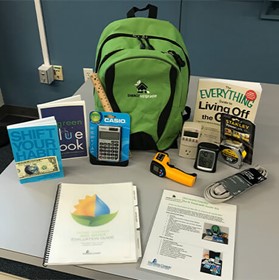
Another option is to check out a Do-It-Yourself (DIY) Assessment Kit from any Sarasota County Library. The Kit provides tools and a step-by-step Home Energy Evaluation Guide for analyzing your household energy use and estimating savings from various solutions. UF/IFAS Extension Sarasota County also offers energy and water efficiency classes and provides efficiency devices to get you started. Watch an Energy Upgrade recording or register for an upcoming Energy Upgrade workshop.
Home Energy Tune Up:
Green Living Toolkit outlines the many free and low-cost ways to save energy and lower your electric bill, while increasing home comfort and helping to slow global warming. The toolkit provides the easiest and most effective energy saving tips. In many cases, the solutions are free—you just make a small tweak to the way you do things. There are also many low-cost solutions that only require a quick trip to the home improvement store. Check out our Energy and Water Saving Factsheet for quick tips and financial assistance resources.
Go Solar:
The toolkit outlines five detailed steps on how to get started with solar. You can also register for an upcoming Solar Basics for Florida Homeowners class or watch the recording on our YouTube page to learn more.

Food:
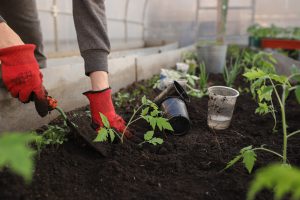
Sustainability is a multifaceted issue, in which the local food production system and food waste play crucial roles. Achieving a healthy and sustainable food future is an urgent matter that depends on all of our collective efforts. Gardens, composting, and savoring food are just a few things you can learn in the food section of the Green Living Toolkit. A brief overview of the toolkit’s food actions are below. You can also learn more about composting, community gardens and growing your own food by taking a UF/IFAS Extension class.
Grow a food garden:
Growing your own fruits, vegetables and herbs is something that can be done with some practice, and anyone can do it whether you live in a house or an apartment. Edible gardening is a great way to reduce your carbon footprint, can beautify your surroundings, reduce your carbon footprint, relieve stress, improve your fitness, and increase your access to safe, nutritious food. I have a raised bed on my apartment’s patio. My little garden is wonderful for reducing stress and it has taught me a lot about patience and over giving.
Eat local sustainable food:
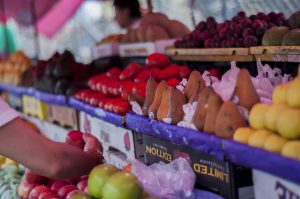
If you’d rather just buy your food, stick with locally grown products. This will reduce greenhouse gases, improve soil health, and biodiversity, and supports the local economy. Check out Transition Sarasota’s Eat Local Guide to find southwest Florida producers, farmers’ markets and farm stands, grow your own supplies, restaurants serving local food and more!
Reduce waste, then compost:
As mentioned in the toolkit, reduce food waste, and save money with smart shopping, meal planning, and food storage. Donate edible food you can’t eat, and compost food scraps to help your food waste come full cycle as natural fertilizer to grow your garden. Personally, I have a worm compost bin on my apartment’s patio, and I am so fulfilled every time I put food scraps in it! Who doesn’t love worms?! Plus, I get nutrient rich soil as a bioproduct for my garden and indoor plants. It’s a win-win!
Waste:
As mentioned in the toolkit, Americans produce almost 200 million tons of trash each year—excluding green waste like food and yard trimmings. That’s over three pounds per adult per day. Only 35.6% of trash is recycled, mostly paper and cardboard. Single-use plastics make up 11% of what Americans throw away, but only 3% of what we recycle. Creating less waste in the first place by refusing, reducing, reusing, and repurposing unwanted items is the best solution—then recycle all you can.
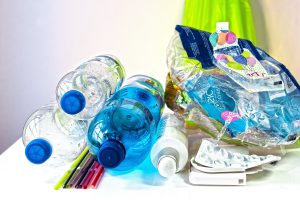
Reduce Single-Use Plastics:
Single use plastics are used for such a short amount of time and then end up spending centuries in landfill or wind up in our environment. Try to stop using plastic water bottles, to-go containers, grocery bags, or any other single-use plastic items. Be a part of the solution by swapping out single use plastic items with durable or compostable substitutes.
Reuse, Repurpose, Restore:
Buy less! We are what’s called a “throwaway society” because a lot of items we purchase are only used a few times. Borrow items you rarely use or buy them secondhand. You can also donate, or swap used items you no longer need. Attend an upcoming UF/IFAS Extension Sarasota County clothing swap event to fight fast fashion and get some new to you items. Restore older items by seeking creative ways to reuse or repurpose. I recently turned an old sweatshirt into a tote bag! For more ideas on how to reuse, repurpose, and restore check out the Green Living Toolkit.

Recycle Right:
Recycling reduces the amount of waste sent to landfills and helps prevent plastic pollution from getting into our environment. We can all make a difference by practicing proper recycling and being mindful of what can’t be recycled such as a pizza box (because it is soiled by food). Learn more about recycling on the Green Living Toolkit or take an upcoming “Recycle Right” class with UF/IFAS Extension Sarasota County.
Water:
Water is a very finite resource on our planet and conservation is something we must consciously think about and act on. You can start by using water wisely within your home. Repairing any leaks, upgrading to water-efficient devices like faucet aerators and low-flow shower heads, and adopting conservation practices. Another big impact you can make to save water is following the Florida-Friendly Landscaping program which also helps curb fertilizer use and requires less maintenance.
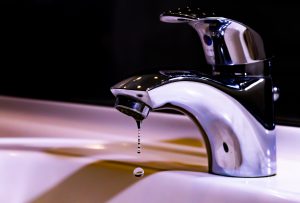
Save Water Indoors:
Turning on the faucet and expecting clean water to run through it right away is something we take for granted and don’t think about often. However, this water is not unlimited, and we are facing increasing population growth. Being more water efficient at home is the first step. You can check for leaks, install low-cost water saving devices, and change your behavior such as taking shorter showers. Learn more about energy and water efficiency in an upcoming UF/IFAS Extension Sarasota County Energy Upgrade workshop. After the class you’ll receive a DIY efficiency kit with items such as low-flow showerheads and faucet aerators.
Cut Water and Curb Pollution:
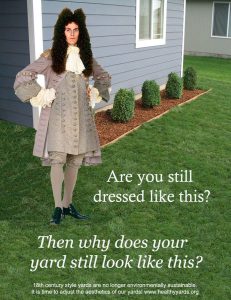
“Lush” lawns come at a heavy price for our environment. It takes an excessive amount of water, fertilizer, and pesticides to maintain a space that lacks all of the biodiversity and complexity that makes outdoor spaces so beautiful. Take an upcoming Florida Friendly Landscaping course to learn more about sustainable landscaping and plants you can have in your yard that create habitat for pollinators and other creatures.
Be a Catalyst for Clean Water:
In order to conserve water on the scale that is needed, we must all be a part of the effort. Lead by example and encourage others to be more mindful about water use and conservation. You can also volunteer for community projects that help improve water quality by reducing stormwater runoff and pollution.
Nature:
When you live in Florida, it can be easy to forget how beautiful and rich in nature this state is. You get used to seeing the same trees on your way to work every day and on the weekends the majority of us just want to be inside where there’s air conditioning. Being out in nature reduces stress levels and fatigue. The first rule for being out in nature is to protect wildlife and be mindful of how your actions affect wildlife so that we can preserve the animals and ecosystems for future generations.
Get Out and Explore:
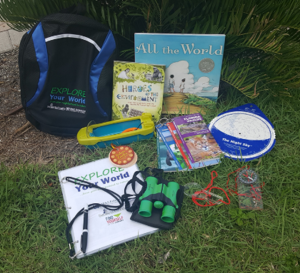
You can make exploring as easy or as rigorous as you like, you can go for a stroll at a shady park, go kayaking between mangroves, or even make it a monthly adventure where you visit a new park each time. There are maps, guides, kits, and tours for all levels of adventure to help you explore parks, beaches, and nature preserves around the Suncoast. You can also check out an Explore Your World Backpack from any Sarasota County Library to help explorers of all ages get outside and explore their world. Each Explore Your World kit packs all you’ll need to get started, including items, books, and activities designed to inspire exploration for all ages… from your neighborhood to nature!
Keep Wildlife Safe:
Respecting and protecting wildlife and their homes while you are in a natural space includes your favorite fishing spot, nature trails, and more. It is important to be mindful about how your actions in the environment affect wildlife and their homes.
Support Backyard Wildlife:
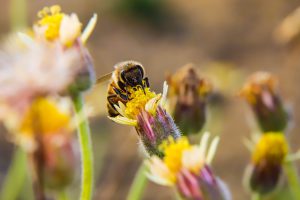
A lot of people think of nature and wildlife as a distant park or green space. However, nature is right when you walk out of your house. With the increase in pesticides of fertilizers, pollinators and other insects are dying off rapidly. Now more than ever we need to do what we can to support these creatures by planting wisely and limiting (or eliminating) the use of lawn maintenance chemicals. Learn more about sustainable landscaping and plants you can have in your yard that create habitat for pollinators and other creatures.
An Invaluable Resource
That’s just a brief summary of what the Green Living Toolkit can offer but there’s plenty more. There’s a section for events in the area if you’d like to explore some of the topics further like discovery walks in the park and an energy efficiency workshop to learn more about what you can do in your home to conserve energy and water. This is a great tool that provides everything you need to love life and live green, all in one place.
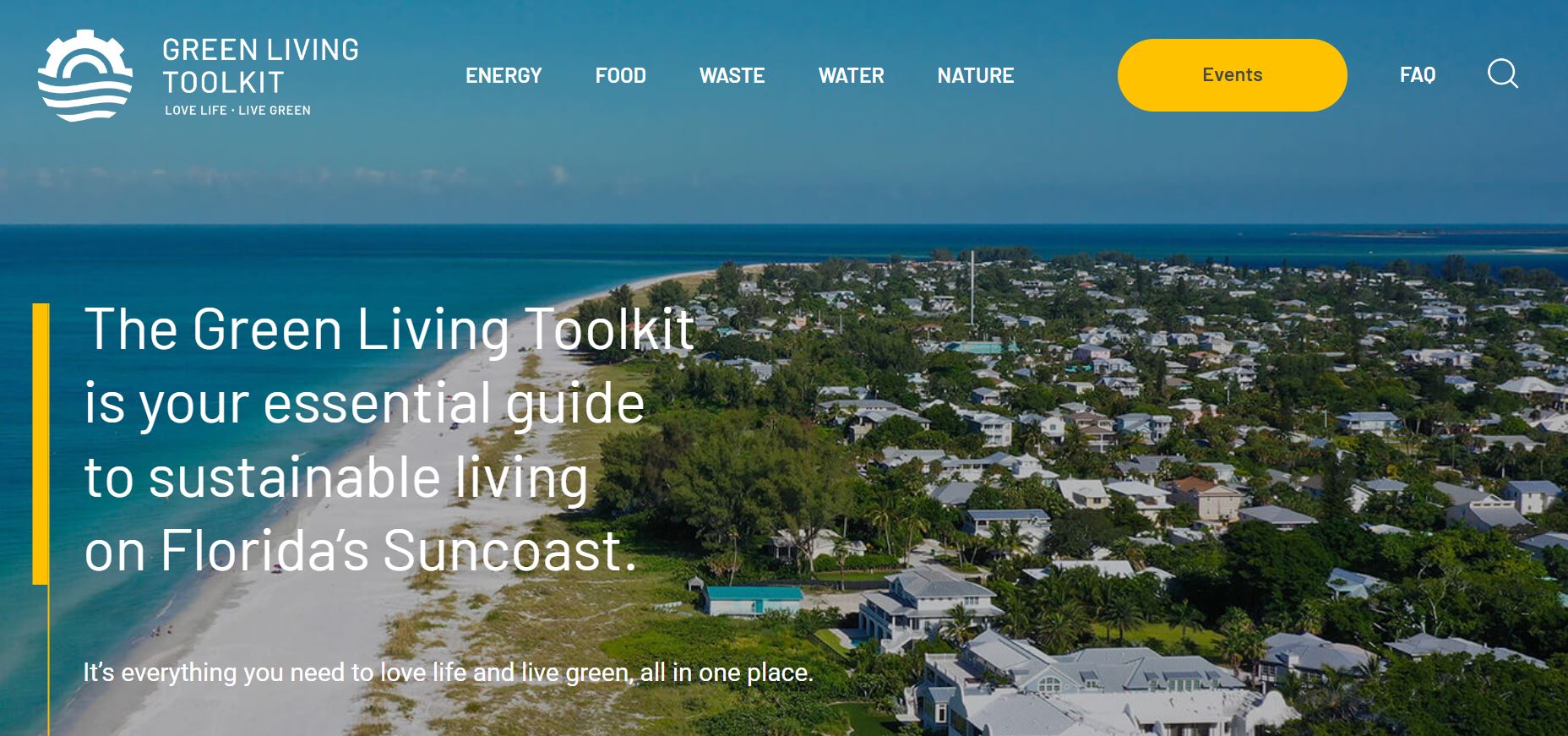
 1
1
